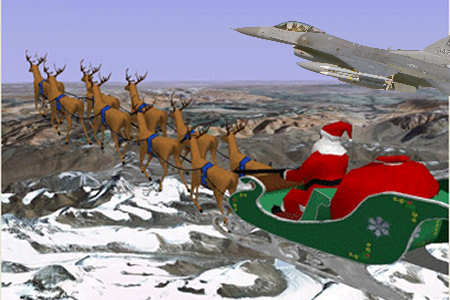![Ante Gotovina http://rudebutgood.blogspot.com/2012/11/ante-gotovina.html [Fair Use] Ante Gotovina http://rudebutgood.blogspot.com/2012/11/ante-gotovina.html [Fair Use]](https://www.exportlawblog.com/images/gotovina.jpg)
ABOVE: Ante Gotovina from Croatian
Propaganda Poster
Ante Gotovina, who is currently designated on the Office of Foreign Assets Control’s List of Specially Designated Nationals and Blocked Persons, filed suit on Monday in federal court in the District of Columbia seeking his removal from that list. Gotovina is a Croatian military officer widely believed to have been implicated in war crimes committed during Operation Storm which involved the “ethnic cleansing” of Serbs from certain territories by the Croatian Army.
Gotovina was added to the SDN list by Executive Order 13304 in 2003. That order designated a number of individuals involved in the Balkan conflicts that arose upon the dissolution of Yugolavia, including all parties who were “under open indictment by the International Criminal Tribunal for the former Yugoslavia,” which Gotovina was at the time.
Gotovina’s complaint is premised upon the 3-2 decision of the Appeals Panel of the ICTY in November 2012 overturning Gotovina’s earlier conviction for war crimes by the ICTY in April 2011. Since he is no longer under indictment by the ICTY, Gotovina claims that he should be removed from the list and alleges that OFAC has refused to respond to his request for removal.
Not surprisingly, Gotovina glosses over the reason for the Appeals Panel decision and argues that it is a complete exoneration of claims that he was a war criminal. In fact, the Appeals Panel decision was more procedural than substantive, setting aside the ICTY decision based on its finding that the “200 meter rule” used by the ICTY was arbitrary. The 200-meter rule excluded arguments that shelling targeted military rather than civilian targets when the shells fell more than 200 meters from legitimate military targets. According to the Appeals Panel, there was no evidence to support 200 meters as a measure rather than, say, 220 meters or 180 meters. As such, the Appeals Panel overturned the decision entirely.
Of course, OFAC is not bound by the Appeals Panel decision and is free to determine on its own whether Gotovina is a war criminal or not. Executive Order 13304 not only permits sanctioning ICTY indictees but also covers persons determined by Treasury “to have committed … acts of violence that have the purpose or effect of … diminishing the stability or security of any area or state in the Western Balkans region.” Treasury could still believe it has evidence that Gotovina committed war crimes and that these crimes threatened stability in the Western Balkans even if the Appeals Panel even if the Appeals Panel had affirmatively decided that Gotovina hadn’t committed war crimes (rather than more narrowly deciding that the 200 meter rule was flawed.) In that regard, there is no reason OFAC cannot, in its discretion, believe that the 2 dissenters on the Appeals Panel are more credible as to Gotovina’s participation in war crimes than were their majority colleagues.

 Posted by
Posted by  Category:
Category: 


![By Hansueli Krapf (User:Simisa) (Own work) [CC-BY-SA-2.5 (http://creativecommons.org/licenses/by-sa/2.5)], via Wikimedia Commons http://commons.wikimedia.org/wiki/File%3AIran_012.jpg By Hansueli Krapf (User:Simisa) (Own work) [CC-BY-SA-2.5 (http://creativecommons.org/licenses/by-sa/2.5)], via Wikimedia Commons http://commons.wikimedia.org/wiki/File%3AIran_012.jpg](https://www.exportlawblog.com/images/tehran_street.jpg) The Pew Research Center just released the
The Pew Research Center just released the ![By Marrovi (Own work) [CC-BY-SA-2.5-mx (http://creativecommons.org/licenses/by-sa/2.5/mx/deed.en)], via Wikimedia Commons http://commons.wikimedia.org/wiki/File%3AAntiguo_Centro_Asturiano%2C_hoy_Museo_Nacional_de_Bellas_Artes.JPG By Marrovi (Own work) [CC-BY-SA-2.5-mx (http://creativecommons.org/licenses/by-sa/2.5/mx/deed.en)], via Wikimedia Commons http://commons.wikimedia.org/wiki/File%3AAntiguo_Centro_Asturiano%2C_hoy_Museo_Nacional_de_Bellas_Artes.JPG](https://www.exportlawblog.com/images/museo_nacional.jpg) Back in August, the Bureau of Industry and Security issued an
Back in August, the Bureau of Industry and Security issued an ![Source http://http://commons.wikimedia.org/wiki/File:Pigeon_Messengers_(Harper%27s_Engraving).png [Public Domain] Source http://http://commons.wikimedia.org/wiki/File:Pigeon_Messengers_(Harper%27s_Engraving).png [Public Domain]](https://www.exportlawblog.com/images/homing_pigeons.jpg) One of the only things that the Cuba embargo has accomplished has been an unusual burst of creativity by U.S. citizens in figuring out clever ways to smuggle Cuban cigars into the United States. Â There is, of course, the method of ordering Cuban cigars over the Internet from a Canadian merchant. Â And not to be forgotten are the helpful tobacconists in London who will relabel and repackage Cuban cigars. Â But nothing beats homing pigeons. Â Seriously, homing pigeons.
One of the only things that the Cuba embargo has accomplished has been an unusual burst of creativity by U.S. citizens in figuring out clever ways to smuggle Cuban cigars into the United States. Â There is, of course, the method of ordering Cuban cigars over the Internet from a Canadian merchant. Â And not to be forgotten are the helpful tobacconists in London who will relabel and repackage Cuban cigars. Â But nothing beats homing pigeons. Â Seriously, homing pigeons.

